
Freedonap 250mg/10mg Tablet
Manufacturer
Dycine Pharmaceuticals Ltd
Salt Composition
Naproxen (250mg) + Domperidone (10mg)
Key Information
Short Description
Freedonap 250mg/10mg Tablet is a combination of two medicines used in the prevention of migraines. It blocks the release of certain chemical messengers that cause pain, inflammation, and fever.
Dosage Form
Tablet
Introduction
Freedonap 250mg/10mg Tablet may be prescribed alone or in combination with another medicine. It can be taken with or without food. The dose and duration will depend on the severity of your condition and how well it helps your symptoms. Use it regularly and do not discontinue using it until the doctor tells you it is alright to stop.
Directions for Use
Take this medicine in the dose and duration as advised by your doctor. Swallow it as a whole. Do not chew, crush or break it. Freedonap 250mg/10mg Tablet may be taken with or without food but it is better to take it at a fixed time.
How it works
Freedonap 250mg/10mg Tablet is a combination of two medicines: Naproxen and Domperidone. Naproxen is a non-steroidal anti-inflammatory drug (NSAID) which works by blocking the release of certain chemical messengers that cause pain due to migraine. Domperidone is a prokinetic which works on the region in the brain that controls vomiting associated with migraine. It also increases the movement of the stomach and intestines allowing food to move more easily through the stomach.
Quick Tips
Have your meals at the same time everyday Avoid bright lights and extreme temperatures Avoid loud music and noisy places Avoid chocolates, cheese, processed food, alcohol and smoking Get enough sleep and avoid stress
Related Medicines
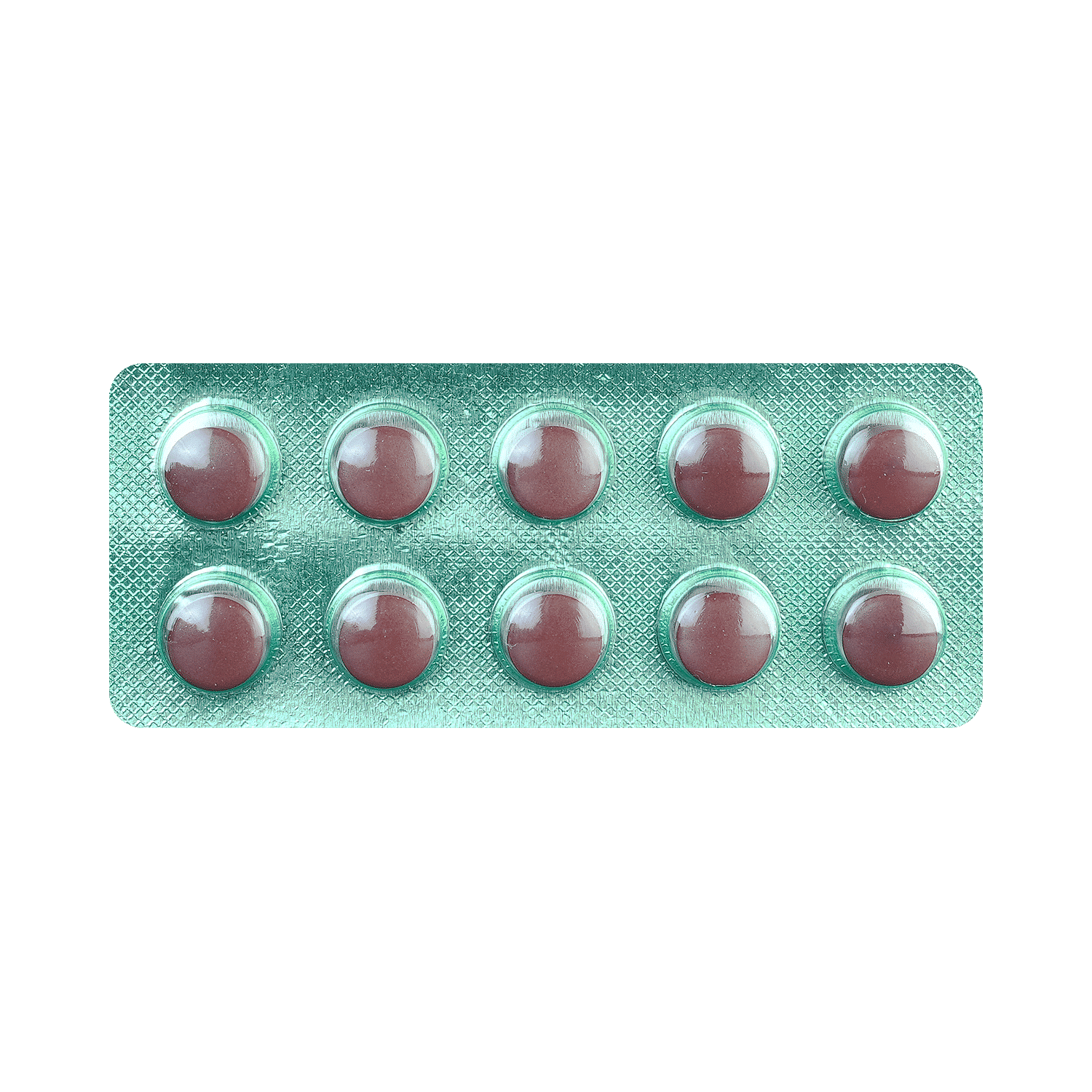
Pacinac NP 250mg/10mg Tablet
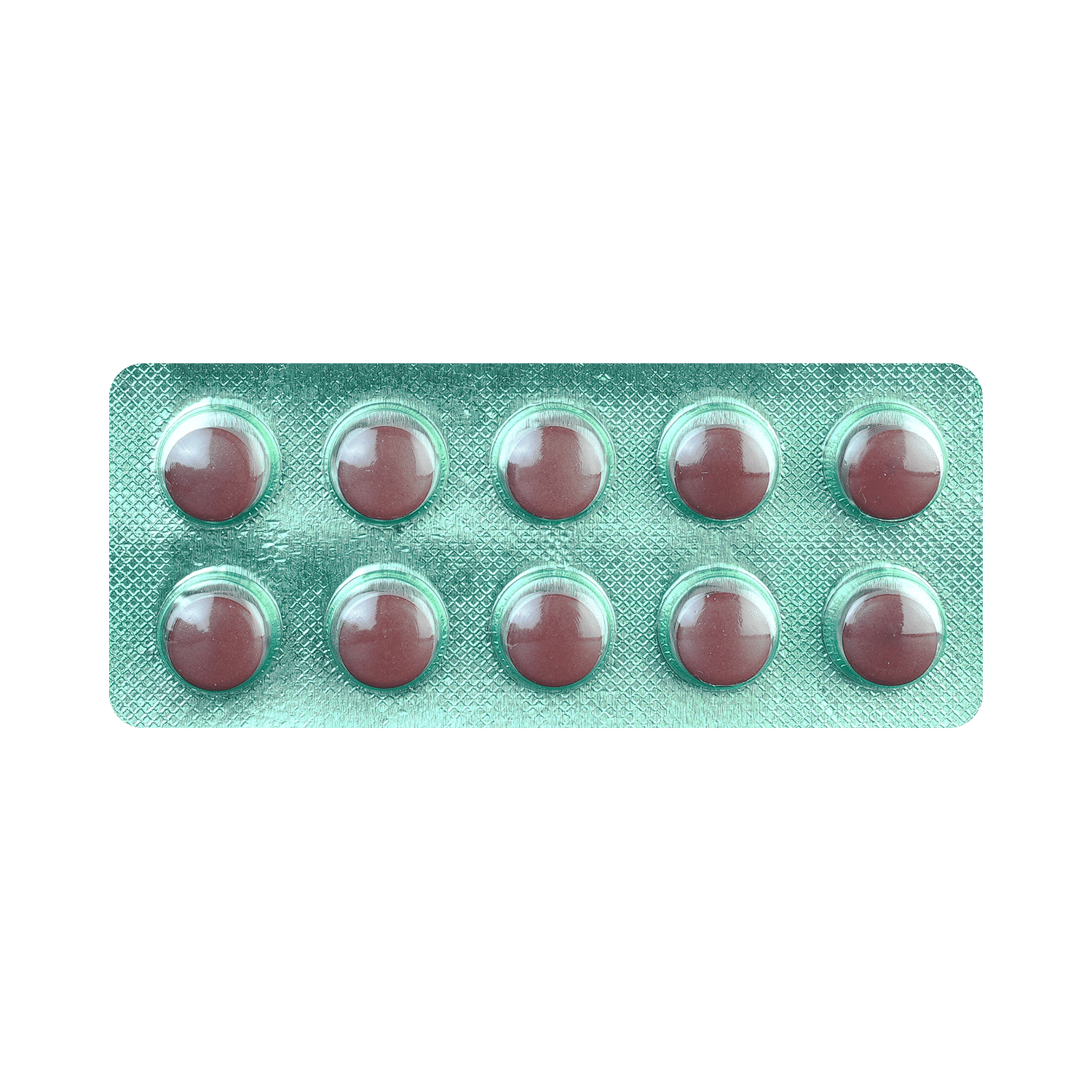
Napra D 250 Tablet
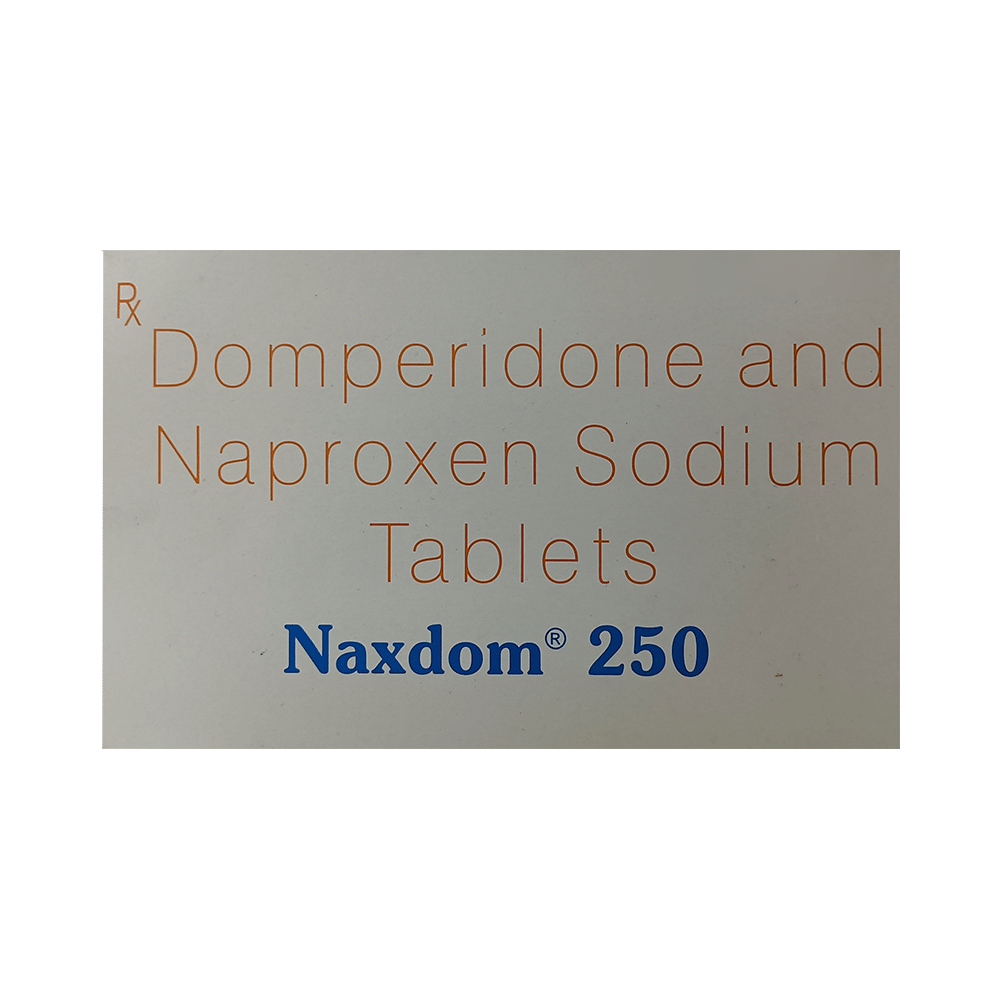
Naxdom 250 Tablet
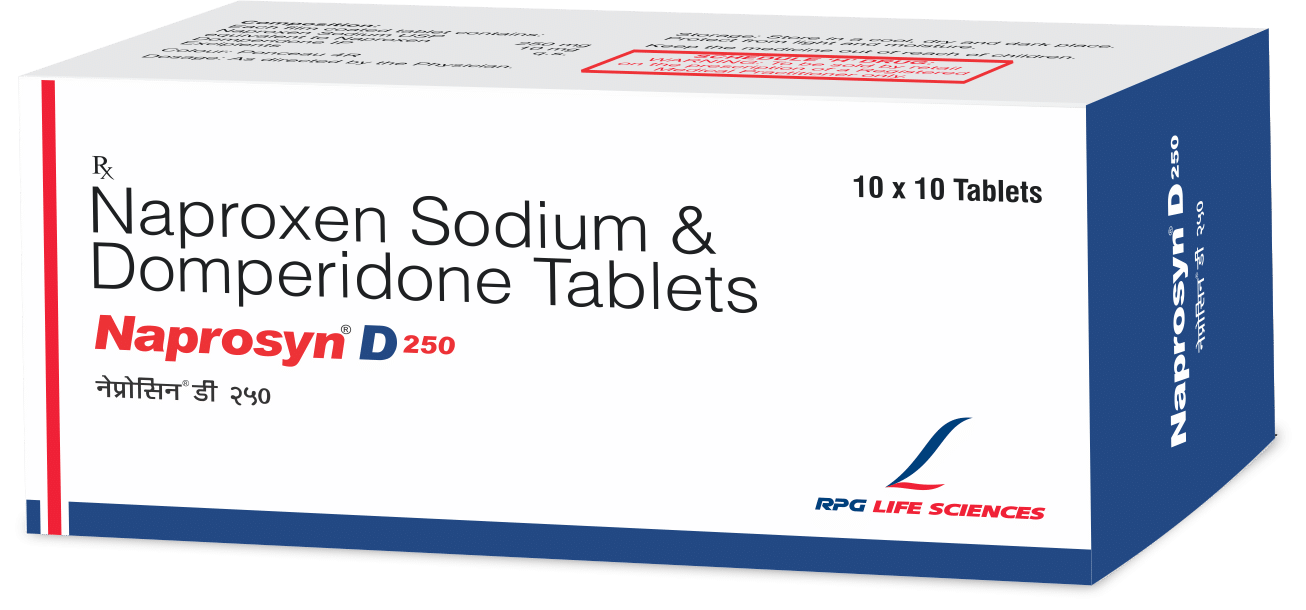
Naprosyn D 250 Tablet
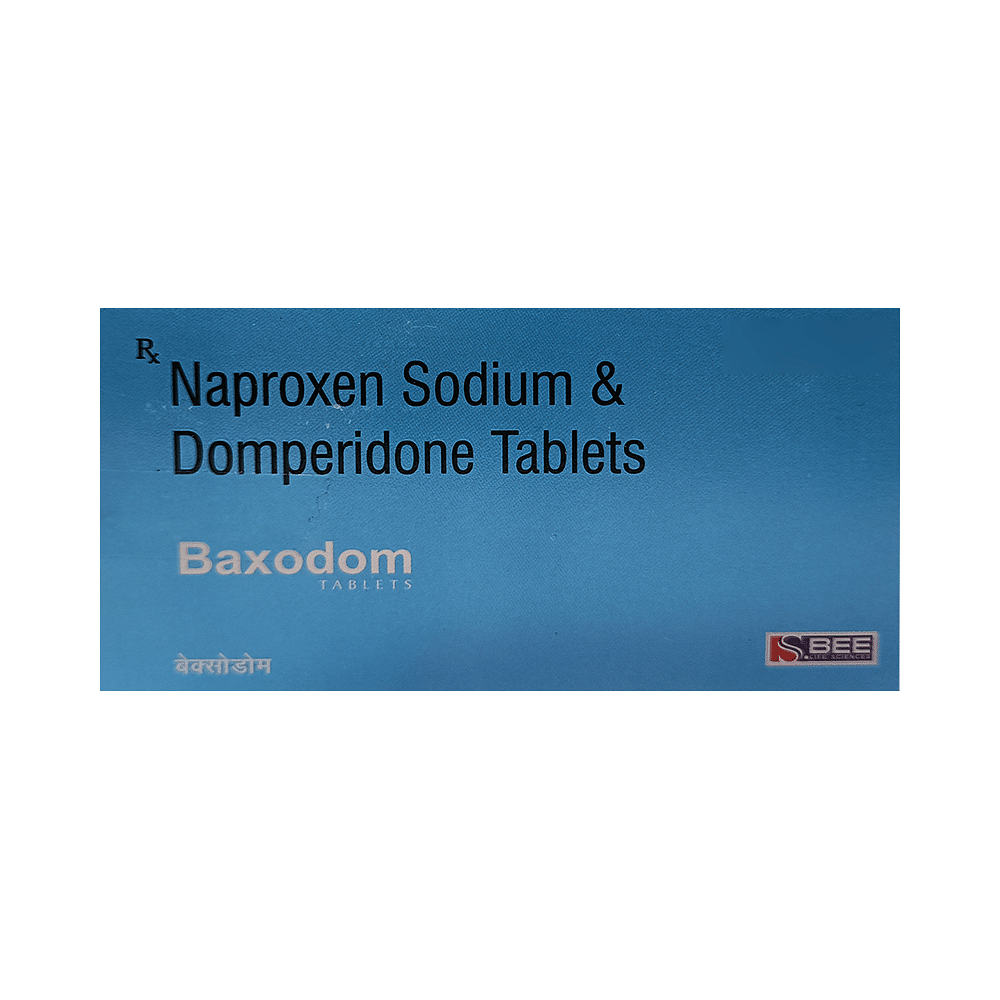
Baxodom Tablet

Naprowel Plus 250mg/10mg Tablet

Napodrix 250mg/10mg Tablet

Swissroxin DP 250mg/10mg Tablet
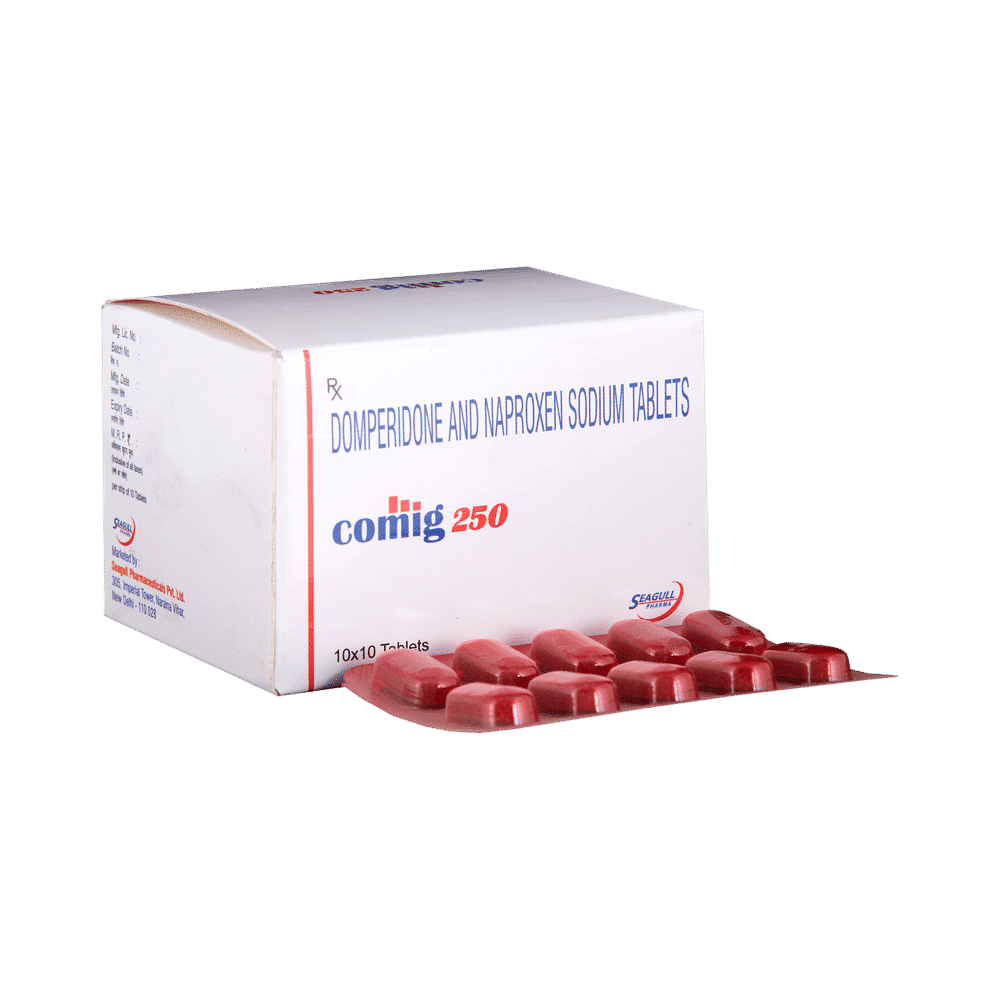
Comig 250 Tablet

Naprostar D 250mg/10mg Tablet
Frequently asked questions
What is Freedonap 250mg/10mg Tablet?
Freedonap 250mg/10mg Tablet contains two active ingredients: Naproxen sodium and Domperidone. This combination treats migraine symptoms such as headache, nausea, and vomiting. Naproxen is a non-steroidal anti-inflammatory drug (NSAID) that reduces pain by blocking the production of certain chemicals involved in headaches. Domperidone is an antiemetic, which means it helps control nausea and vomiting. It also increases stomach and intestinal motility to aid food movement through the digestive system.
Should I stop taking Freedonap 250mg/10mg Tablet once my migraine symptoms improve?
No, continue taking Freedonap 250mg/10mg Tablet until advised by your doctor or as prescribed.
Can Freedonap 250mg/10mg Tablet cause diarrhea?
Yes. Diarrhea is a potential side effect of Freedonap 250mg/10mg Tablet. If you experience diarrhea, drink plenty of fluids. If diarrhea persists or is accompanied by dehydration symptoms such as dark-colored urine with less urination, consult your doctor. Do not start any other medications without consulting your healthcare provider.
Are there any specific contraindications associated with using Freedonap 250mg/10mg Tablet?
Freedonap 250mg/10mg Tablet is not recommended for individuals with known allergy to the medicine's ingredients, including other NSAIDs. It should be avoided in patients with a history of stomach ulcers or active or recurrent stomach ulcer/bleeding. Further considerations include: Use avoidance in patients with known heart failure, high blood pressure, and existing liver or kidney diseases.
Can Freedonap 250mg/10mg Tablet damage the kidneys?
Yes, long-term use of Freedonap 250mg/10mg Tablet may increase risk of kidney damage. This is because it can reduce prostaglandins, a chemical that protects kidneys from damage. Use of painkillers for extended periods should be carefully considered by patients with pre-existing kidney disease.
Can I take more than the recommended dose of Freedonap 250mg/10mg Tablet?
No, exceeding the prescribed dosage may increase your risk for side effects. If you experience severe migraine attacks that don't respond to the recommended doses, consult your doctor for a re-evaluation.
What are the appropriate storage conditions for Freedonap 250mg/10mg Tablet?
Store Freedonap 250mg/10mg Tablet in its original packaging, tightly sealed. Follow storage instructions on the package or label. Always dispose of unused medicine properly and ensure it is not accessible to pets, children, or other individuals.


